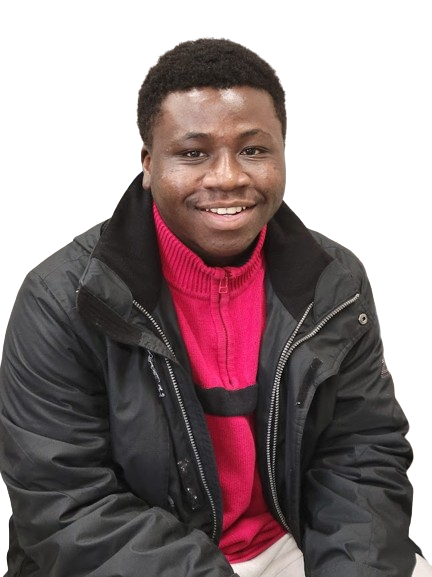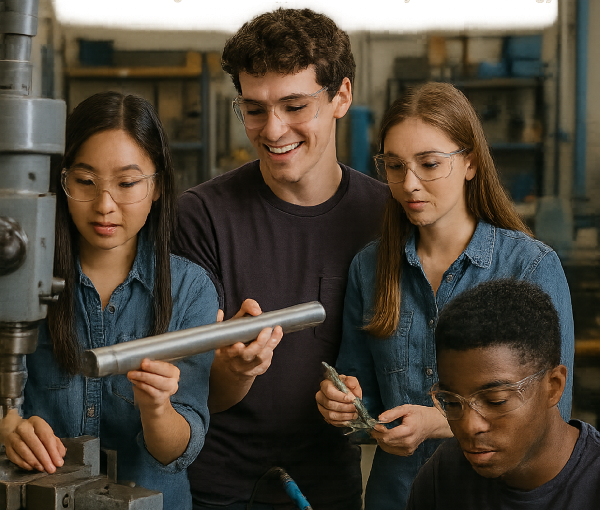Generated with the help of OpenAI. (2025). ChatGPT (May 30 version) [Large language model]. https://chat.openai.com/
If you read our last post about academic research, you already know how valuable those entry-level roles can be for learning, growth, and discovery. But what if you’re someone who thrives on solving real-world problems with real-world outcomes? What if you want your research to leave the lab and make its way to hospitals, manufacturing lines, or even climate models?
That’s where industry research comes in.
Whether you’re passionate about pharmaceuticals, biotechnology, environmental science, or consumer health products, industry offers a wide spectrum of research roles that blend scientific rigor with direct application. And the best part? These positions are not just for people with advanced degrees or 10+ years of experience. They’re available to recent graduates, career explorers, and even undergrads seeking summer roles.
Let’s break down what entry-level industry research is all about—and why it might be the perfect fit for you.
So, What Counts as Industry Research?
Industry research happens outside of academic or government institutions. You’ll find these roles in:
- Pharmaceutical companies (e.g., Pfizer, AbbVie, Novartis)
- Biotech firms (e.g., Genentech, Illumina, Ginkgo Bioworks)
- Environmental & sustainability companies
- Medical device developers
- Food & consumer goods (e.g., 3M, Procter & Gamble)
- Clinical research organizations (CROs) like ICON, IQVIA, or Labcorp
Your job might involve testing new compounds, designing experiments for product development, supporting clinical trials, or analyzing large datasets to optimize a product.
How Does It Compare to Academic Research?
Let’s talk vibe.
| Aspect | Academic Research | Industry Research |
|---|---|---|
| Pace | Often exploratory, longer timelines | Faster, goal-driven |
| Focus | Publishing and generating new knowledge | Producing results with commercial or public impact |
| Mentorship | Close work with faculty and grad students | Supervision by team leads or project managers |
| Flexibility | Usually part-time or tied to the school year | Often full-time, structured shifts |
| Funding | Grants and institutional budgets | Corporate R&D budgets |
| Outcome | Publications, thesis, grants | Patents, prototypes, product launches |
In short: academic research is great for foundational learning, but industry research puts your science to work—on timelines, with deliverables, and often with cross-disciplinary teams.
Why Start in Industry? Here Are the Perks
There’s a lot to love about getting your start in industry research:
- 💼 More structured work environments: You’ll likely have defined hours, team roles, and training protocols.
- 💰 Better starting salaries: Industry positions often pay more than academic RA roles, especially at full-time entry level.
- 🚀 Clearer advancement tracks: Many companies offer professional development, internal mobility, and early promotion opportunities.
- 🔬 Exposure to applied innovation: You’ll see how R&D leads to real products and solutions—fast.
- 🧠 Transferable skills: Industry teaches project management, collaboration, and regulatory knowledge that’s invaluable across sectors.
Where Can Students Find Industry Roles?
You don’t need a foot in the door to start exploring. Here’s how students and grads are finding roles:
For Undergrads & Summer Seekers
Look into summer internships and co-ops at companies like:
- AbbVie Internship Program – paid internships in pharma and life sciences
- Genentech’s Summer Internship Program – biotech-focused with real lab experience
- 3M Student Programs – includes lab and data roles in R&D
Tip: Many of these open applications in fall and spring—so start early and set reminders!
For Seniors & Recent Grads
Check full-time listings like:
- Clinical Research Coordinator – Labcorp
- Research Associate – Moderna
- Biotech Lab Technician – Ginkgo Bioworks
- Environmental Research Analyst – Stantec
You can also filter listings on Handshake, LinkedIn, and Indeed by “entry level,” “research associate,” or “lab technician” + your interest area.
How to Stand Out When Applying
Whether you’re applying for a summer internship or a full-time role, here’s how to shine:
- Customize your resume with action verbs and lab/project experience
- Highlight soft skills like communication, adaptability, or teamwork
- Learn the lingo—mention tools like ELNs, CRISPR, Python, or PCR (only if you’ve used them!)
- Write a short, energetic cover letter that shows your enthusiasm for the company’s mission
And don’t underestimate your campus connections—ask your professors or career center if they know alumni in your target field.
Message From The Career Center
Whether you’re just starting to think about summer opportunities or have been searching with no luck—we’re here to help. The Career Center offers personalized support, and we’ve worked with tons of students in all kinds of situations.
Not sure where to start? Feeling stuck? We can help you:
✔️ Explore internship or job ideas
✔️ Polish your resume or cover letter
✔️ Navigate Handshake or other search tools
✔️ Make a plan that works for you
Our goal is to make things clearer, not more stressful.
📅 Book a time that works for you: http://lawrence.joinhandshake.com/appointments/new
No pressure, just helpful conversation and actionable steps.
Final Thoughts: Industry Research = Science in Action
Here’s the truth: whether you end up in academia, clinical work, or the corporate world, entry-level industry research is one of the most dynamic ways to start your career. You’ll be immersed in teamwork, real data, and real impact. And yes—you’ll grow. A lot.
Whether you’re a curious sophomore looking for a summer experience or a senior thinking ahead to post-grad life, don’t overlook the world of industry. It’s where science meets speed. Ideas become innovations. And you? You become a researcher who makes things happen.
So go ahead—apply. Email that recruiter. Tweak that resume. Your future in research doesn’t have to be confined to the ivory tower. Sometimes, the best discoveries happen when you step outside the lab coat.

Dennis Boakye ’26 is a junior with a major in Neuroscience and a minor in Mathematics. He is also a co-president of the Neurolawrence Club and the Synthetic Biology Club, and the treasurer for the American Medical Student Association (AMSA, Lawrence Chapter) and the Black Student Union (BSU). Dennis is the current career peer educator for the Health and Medicinal Professions (HMP) and the Physical and Natural Sciences (PHN) career communities at Lawrence University. Connect with Dennis on LinkedIn.
